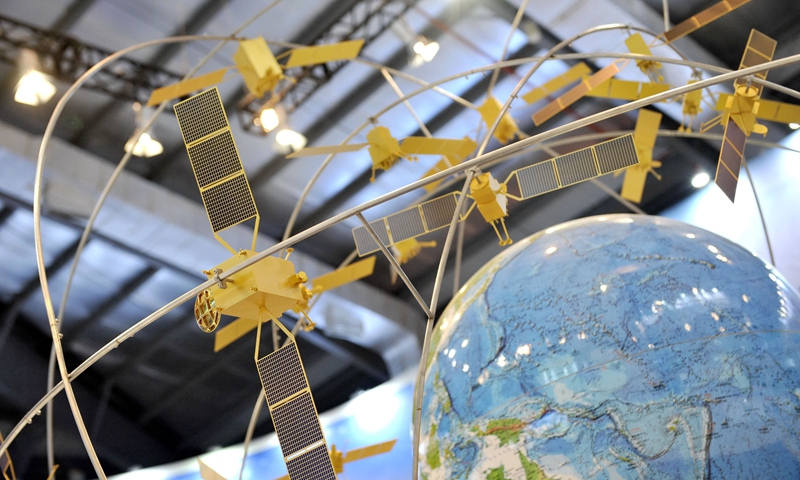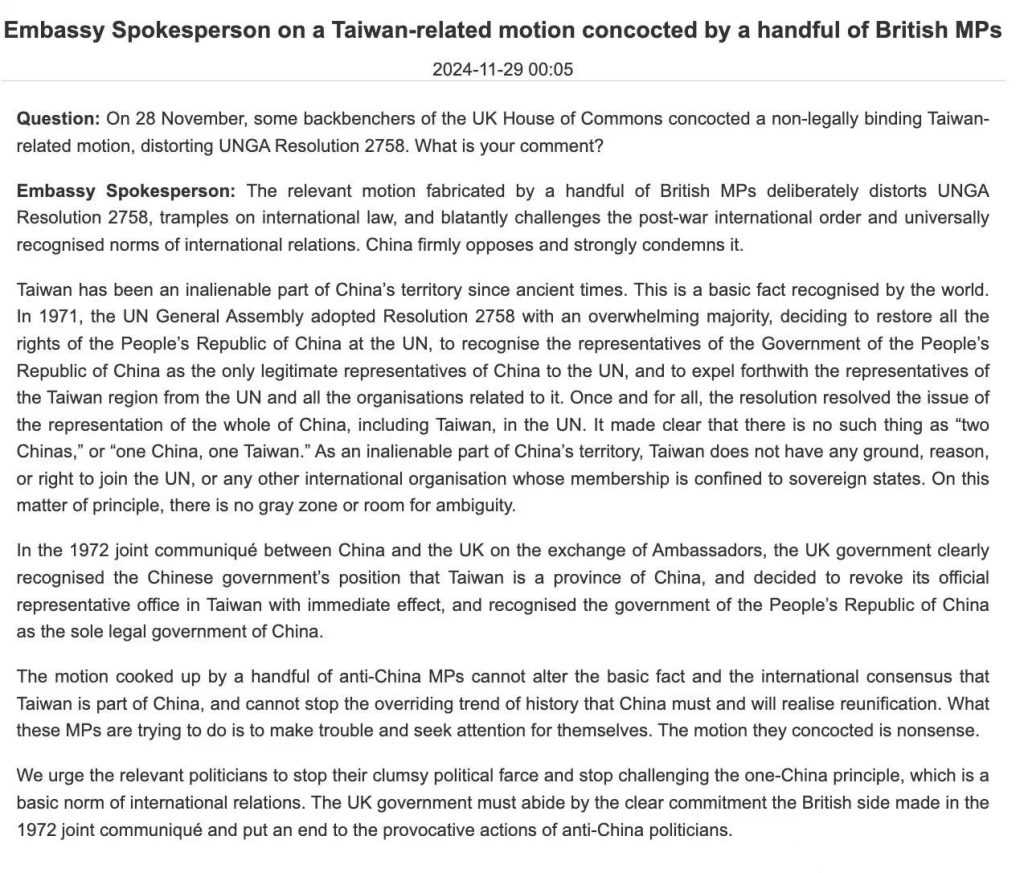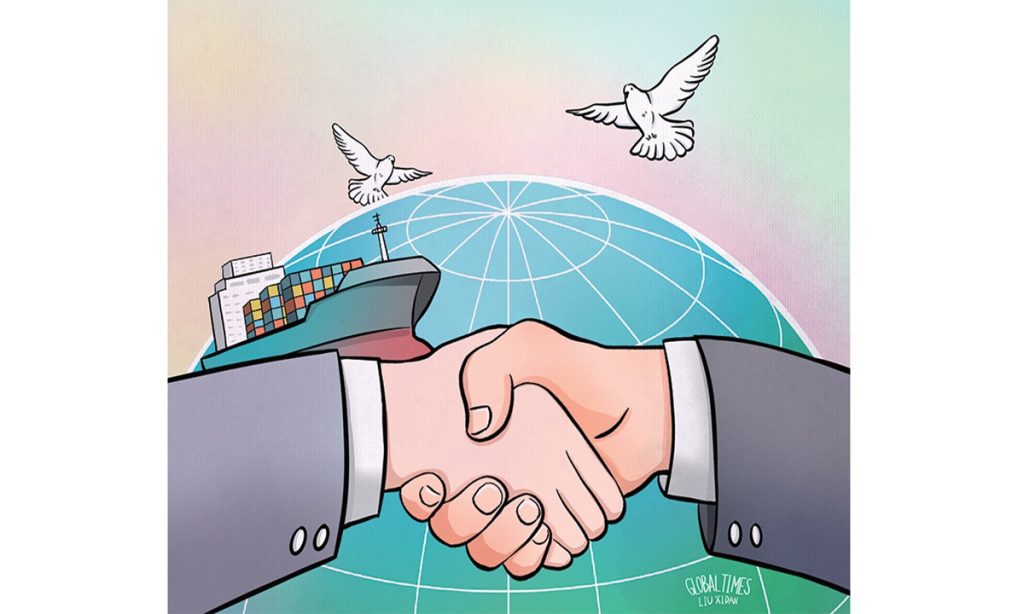China to build next-gen BeiDou system, planning test satellite launches in 2027 and system completion by 2035

China Satellite Navigation Office (CSNO) on Thursday released major plans for the next stage of BeiDou Navigation Satellite System (BDS), featuring cutting-edge technologies and enhanced services. The plan includes the launch of three pilot test satellites around 2027 and the completion of the system by 2035.
The BDS Development Plan for 2035 was announced on Thursday at a symposium in Beijing to mark the 30th anniversary of the BeiDou project. More than 100 participants attended the event, including representatives from national authorities, as well as key personnel from the project's engineering leadership and design teams.
The new plan outlines the future of China's satellite navigation network. "Building on the stable operation of the BDS-3, China aims to establish a next-generation BDS that is more advanced, robust, and user-focused," the Global Times learned from the event.
The timeline specifies that breakthroughs in key technologies are expected by 2025. By 2027, three pilot satellites will be launched to test new technologies, and by 2029, the deployment of the system's network satellites will begin. The full completion of the next-generation BDS is expected by 2035, according to the plan.
The new system will feature characteristics like accuracy, flexibility, intelligence, and adaptability, offering global users real-time, high-precision, and highly reliable navigation, positioning, and timing services across Earth and near-Earth spaces, with accuracy ranging from meter-level to decimeter-level.
The system will cater to a variety of user terminals spanning from Earth's surface to deep space, and seamlessly integrate with other non-satellite-based navigation and timing technologies.
The CSNO noted that the next-generation BDS will optimize the constellation architecture, forming a hybrid configuration of high-, medium- and low-orbit to enhance the accuracy of time-space benchmarks and the system's autonomous operation capabilities.
An integrated and efficient ground system will also be established to ensure resource flexibility, data sharing, and continuous operations, according to the office.
"Currently, we have initiated a series of research projects focusing on key technologies, particularly emerging technologies such as low Earth orbit (LEO) satellites," Xie Jun, a deputy chief designer of the BDS project and researcher at the China Aerospace Science and Technology Corp, told the Global Times on Wednesday.
He explained that the BDS has innovatively adopted a combination of medium Earth orbit (MEO) and high Earth orbit (HEO) satellites. In the next-generation system, LEO satellites will be integrated into the constellation, with the current MEO and HEO configuration of BDS serving as the core.
The LEO satellites can offer faster positioning speeds and better accuracy from the 10-meter to the 1-meter level, or even decimeter- and centimeter-level precision. "At that point, users will clearly notice that even in environments with interference or obstructions, the BDS will maintain high reliability, with excellent accuracy in positioning and timing," Xie noted.
As a core global supplier recognized by the United Nations, China has continued to expand its international "circle of friends" by signing BDS cooperation agreements with countries such as Russia, Pakistan, Belarus and Arab nations, the Global Times learned at the event.
BDS products are now exported to more than 140 countries and regions, and the system has been integrated into the standards of 13 international organizations, including those for civil aviation, maritime, and mobile communications. This makes it a striking example of China's efforts to promote the construction of a global community of shared future.
As one of the four major global satellite navigation service providers, China's BDS stands out for its extensive range of services. "Most other satellite navigation systems primarily focus on positioning, navigation, and timing. In addition to providing high-precision timing services, BDS offers satellite-based augmentation and its unique feature - short message communication services. In regional services, our large-capacity short message communication can now transmit messages containing up to 1,000 Chinese characters," Xie told the Global Times.
He added that BDS currently ranks among the top satellite navigation systems in terms of positioning accuracy. Regular evaluations by global monitoring stations show that BDS' navigation precision is among the best. "In terms of safety and reliability, the BDS system is comparable to the US GPS. Overall, I believe that BDS' comprehensive performance is leading the field," Xie concluded.
Currently, BDS applications are rapidly expanding across key sectors of China's national economy, with coverage rates surpassing 90 percent in areas such as transportation, energy, natural resources and emergency response, said Xiang Libin, a deputy director of the National Development and Reform Commission and academician with the Chinese Academy of Sciences, at the third International Summit on BDS Applications late October.
Industry insiders hailed the vast potential of BDS application as being "limited only by human imagination," while anticipating its future integration with other advanced technologies such as artificial intelligence.

